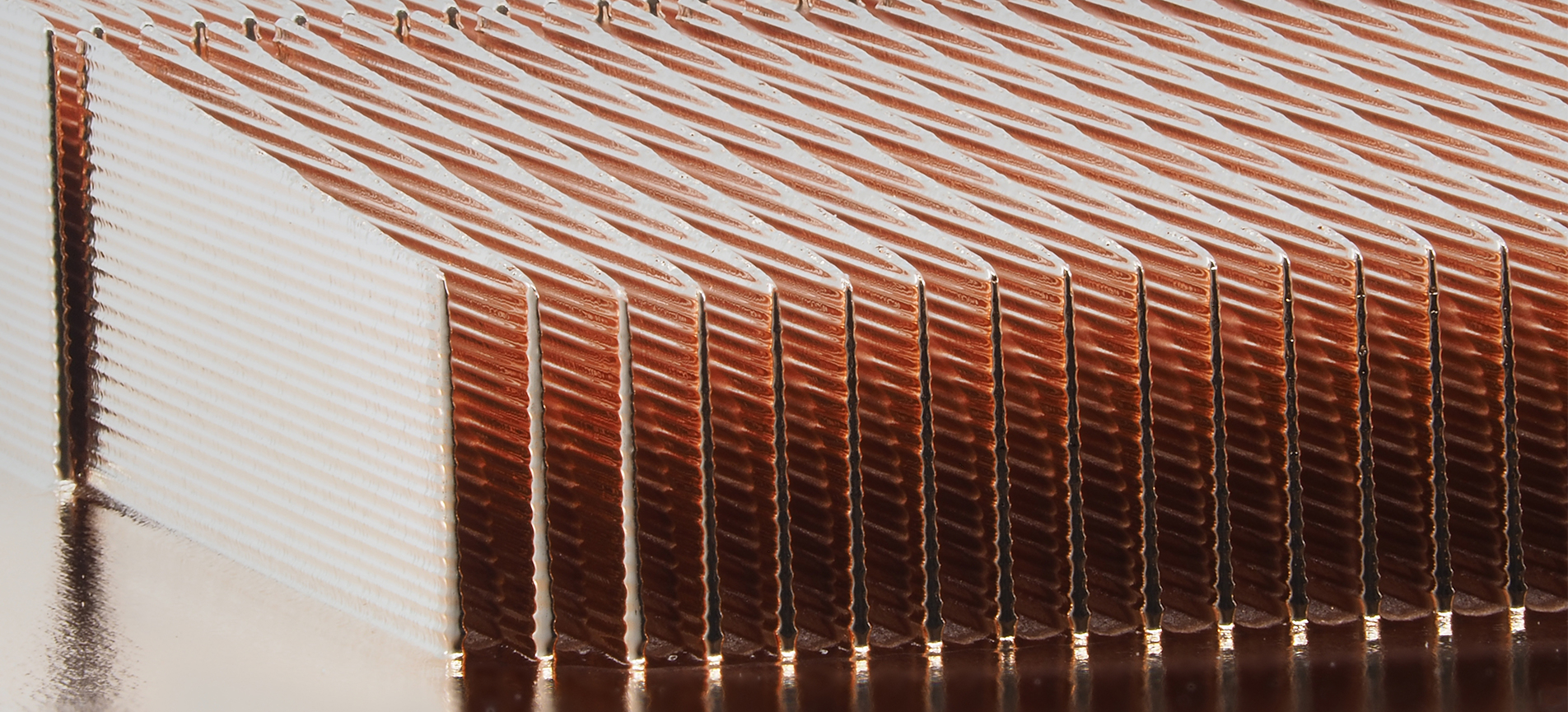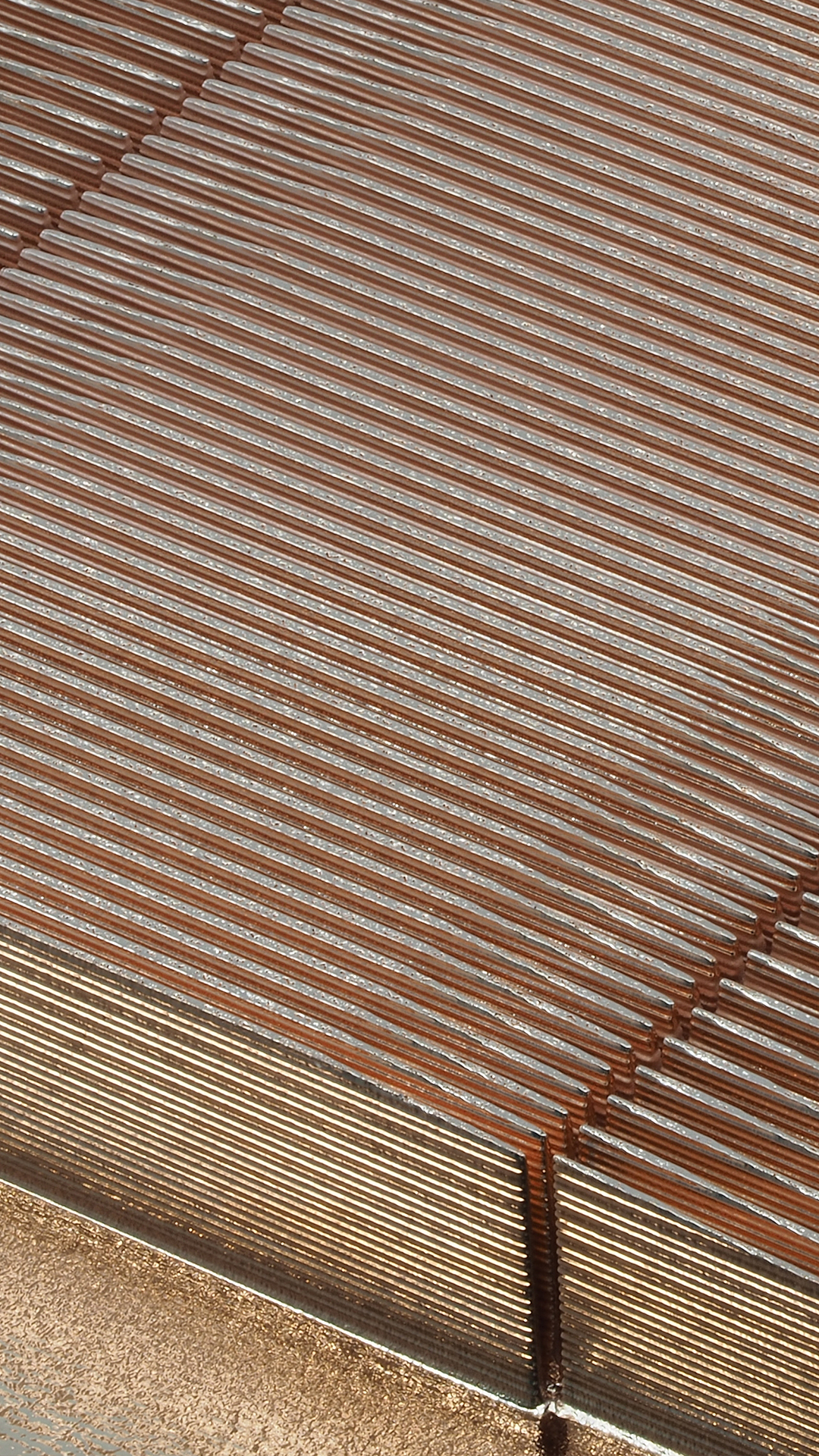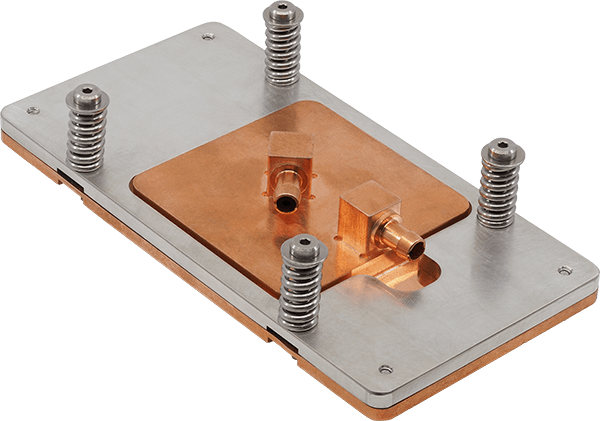
Two-Phase Liquid Cooling

Built for Boiling Performance
Fabric8Labs delivers advanced two-phase liquid cooling solutions using Electrochemical Additive Manufacturing (ECAM). Our process prints copper microchannels with fine capillaries that enhance fluid wicking, reduce dry-out, and improve thermal reliability under extreme conditions.
Key Benefits of ECAM for Two-Phase Cooling:
-
Printed capillary structures for superior liquid return
-
High-resolution geometries with no machining required
-
Direct copper growth on thermal substrates for lower resistance
Two-Phase Cooling with ECAM
Fabric8Labs leverages Electrochemical Additive Manufacturing (ECAM) to build high-performance two-phase cold plates with precision-printed microchannels and integrated capillary structures. This fully additive, room-temperature process allows copper to be grown directly onto metal or silicon substrates, reducing thermal resistance and improving fluid return in boiling regimes.
Our two-phase cold plates are designed to:
-
Enhance wicking through capillary-rich microchannel designs
-
Maintain stable boiling with improved liquid return and rewetting
-
Enable custom geometries tuned for specific heat flux profiles
From benchtop prototypes to high-volume production, ECAM gives thermal teams the freedom to design around the physics of phase change — not the limits of conventional manufacturing.
Prototype to Production
The ECAM platform supports the complete development cycle, from early design validation to high-volume manufacturing:
-
Rapid digital prototyping – Move from concept to functional hardware in days, enabling fast iteration and design refinement without tooling delays. This agility allows engineers to test multiple geometries in parallel and quickly converge on the optimal thermal solution.
-
Volume manufacturing – Produce high-precision inserts at scale with consistent geometry, material quality, and thermal performance. ECAM’s parallelized, room-temperature process ensures that scaling output does not compromise part accuracy or reliability, making it ideal for both niche and mass-market photonics applications.
-
Supply chain integration – Deliver fully finished, ship-to-line inserts ready for assembly by your preferred cold plate or optical module provider, ensuring seamless adoption into existing manufacturing workflows. Fabric8Labs can align production schedules, packaging, and quality assurance protocols with your current suppliers to accelerate deployment.
Proven Design Strategies
Fabric8Labs’ ECAM technology delivers cooling solutions engineered for the most demanding semiconductor and photonics applications—whether it’s GPUs in AI data centers, or high-power laser diodes and optical transceivers in advanced communication systems. Every design is optimized for both peak thermal performance and scalable manufacturability.
- Power-Map Optimization – ECAM enables microchannel geometries precisely matched to each device’s heat flux profile, targeting cooling capacity exactly where GPUs, AI accelerators, or photonic components generate the most heat.
- Hybrid Baseplate Integration – Merge conventionally machined surfaces for mechanical or optical alignment with ECAM-printed microstructures for heat removal, creating a single assembly that meets both precision alignment and extreme cooling requirements.
- Reliability at Scale – Monolithic, high-purity copper features reduce leak paths, resist fouling, and deliver stable performance over extended operating lifetimes—critical for hyperscale deployments and mission-critical optical networks.

ECAM Enables Best-In-Class Liquid Cooling
Unlock Mass-Customized, High-Performance Cooling with ECAM. Rapidly deploy optimized thermal solutions tailored for your most demanding high TDP applications. Get the technical data and performance curves – download our B200 case study.